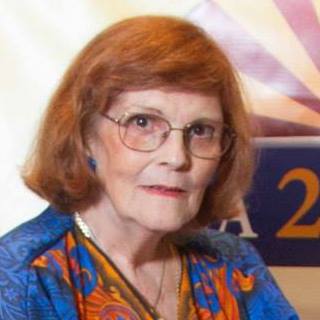| By: Paul S. Cilwa | Viewed: 5/1/2024 |
Page Views: 636 | |
| Topics: #Denmark #Places #SuryaHood | |||
| Commentary on Paul S. Cilwa's trip to Denmark by Surya Hood | |||

This email was received from my sister-in-law, Surya, regarding my trip to Denmark. Since she used to live there—she is Chris' mother—I thought I would include her comments here for those others who may be planning a similar trip.
Hi—-
Just got through splitting my sides from laughter while reading your passport tales of woe.
"Zealand" is the German name for Sjaelland (Sheltered Island - or something close to that translated from Danish).
The trains run quietly because all the new trains and now most of the old trains run on a kind of rubber wheels. A law was passed by the Euro community for this in an effort towards noise abatement. They seem to be sturdier and don't hop and sway as much as they use to do. I think the French were the first to do this, though I might be incorrect. At least, they were the first I experienced rubber wheels with years ago.
Trolde Skoven: I can give you a few Surya-filtered facts that are known about the forest. The trees there are several hundred years old. The coast was miles further away than it is today. The soil there had been rich farm land and not sandy as it is today. I think the area was a wooded area surrounded by farmland. There was actually a virus or bacteria of some sort found in the soil and the chemical composition of that particular patch of soil had changed from the land around it. The woods at that time was originally much different than it is today. Please note that some of what is now part of the non-Trolde Skove was once farm land. And there was a problem with mis-managed lumbering also. Trees were cut down and not replaced. This added to the problem. You are correct that new Trolde trees no longer grow there. In Jutland, they have actually "wandering dunes" due to this very same land mis-management. The trees in Trolde Skoven began to topple later as the coastal waters came closer to the forest and the soil became sandier. This information was given to me by someone who makes his living at horiculture and forest management in Denmark. Much of the other part of the forest has been planted in an effort to preserve the coast. Of course, you are now getting the info through my filters of understanding as to what he was talking about.
Anyhow, ask Michael about the sanded-over church he visited on Jutland (a forest or woods is also near by and has been planted this century) that now is very close to the shore, just as is the church on the island of Moen. The church on Moen sits precariously on the cliff (one can no longer go into the church as was possible 35 years ago) - and is on the verge of toppling into the Kattegat (the body of water between Denmark and Sweden). This land is not sandy but chalk-like and crumbles. Both of these places were miles from the coast at the time they were built some couple of hundred and odd years ago.
The spot where Trolden Skoven is, has never been large. It hadn't changed a great deal the last time I saw it with Chris and Michael from the time before that which was some 12-15 years previously. Chris had never seen it before I took him and Michael there. Perhaps it looked bigger to Chris only because of the awe of it the first time one sees it. It seemed very large to me the first time I saw it, too—and I visited there often in the years I lived in Denmark. I loved both the forest and the beach, so it was one of Bernt and my favorite "drives in the country, let's have a picnic" spot. Chris didn't even know of its existence until I asked if we could go there, as it was close by. As soon as I find my photos, you shall have copies.
Holgar Danske was one of two resistance organizations which sprung out of the invasion by the Germans in WW II. Jens was a member of the other one, Bopa. Jens was 16 years old and in school when he and some of his friends started up an underground newspaper. His mom and dad had no notion of this, of course. One day, Jens was warned that the Germans were on their way to arrest someone at the school for printing these newspapers. Not knowing who that "someone" was (as it turned out, it wasn't Jens), Jens and his friends left school in a hurry. When he got home, his parents were horrified and packed him up to send over to Jens' aunt and uncle, Inge and Ove, in Jutland (Jylland). As it turned out, Ove was a member of the resistance over there and Jens then graduated from writing and printing illegal newspapers to blowing up German trains. His Mom and Dad were not made privy to this info until years after the fact.
I must write Chris and Karina and ask them what Cheezy stuff you put in the Stroganoff.
Once again, you out-did yourself as a raconteur. Excellent!





